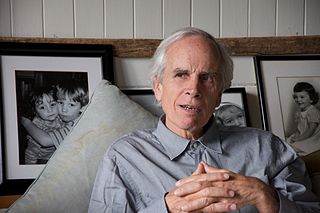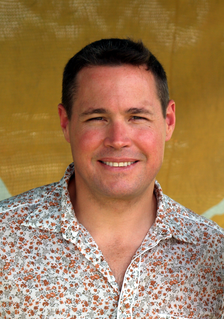A Quote by James Hansen
We're handing them [young people & future generations] a climate system which is potentially out of their control. We're in an emergency: you can see what's on the horizon over the next few decades with the effects it will have on ecosystems, sea level and species extinction
Related Quotes
Climate change is not a major issue because it will cause sea level rises or temperature increases, since we know how to live at higher elevations and regulate the temperature within our homes. It is a major issue because ecosystems are finding it difficult to adapt to the rapidity of the climate and environmental changes and are dying off, thereby accelerating the species extinction that is already underway due to our consumption habits.
A large animal needs a large area. If you protect that area, you're also protecting thousands of other plants and animals. You're saving all these species that future generations will want - you're saving the world for your children and your children's children. . . . The destruction of species is final. If you lose a species, you lose the genes, you lose all the potential drugs and potential foods that could be useful to the next generations. The ecosystems will not function as they have.
It's possible that we'll screw up the climate so badly that most of us will die and a few breeding pairs will remain somewhere in the arctic. What's more likely is that we'll continue remaking the planet, driving many species to extinction, killing millions of people through the indirect effects of climate change, making life even harder for the poor and powerless than it is now, and making it a little more difficult for the global middle class to live the lives to which they have become accustomed - in other words, business as usual, only worse.
The early Triassic was a period when the planet was recovering from the worst mass extinction it had ever known - that was the end Permian extinction, where climate change caused in part by mega-volcanic eruptions wiped out ninety-five percent of life on Earth. It took about ten or twenty million years for the planet's ecosystems to stabilize. During that time you saw a lot of weird, out-of-balance ecosystems where, for example, crocodile-like predators ripped the crap out of each other along the coasts.
Societies that exclude the exoskeleton of religion should reflect carefully to what will happen to them over several generations. We don’t really know, because the first atheistic societies have only emerged in Europe in the last few decades. They are the least efficient societies ever known at turning resources (of which they have a lot) into offspring (of which they have few).
Many scientists would argue that we are now in what is called Extinction, and it's caused by this perfect extinction storm: climate change, habitat loss, pollution, unsustainable exploitation of species and habitat resources, and of course, human population explosion. All of these factors work together and conspire to drive a species to extinction on our planet, every half an hour.


































